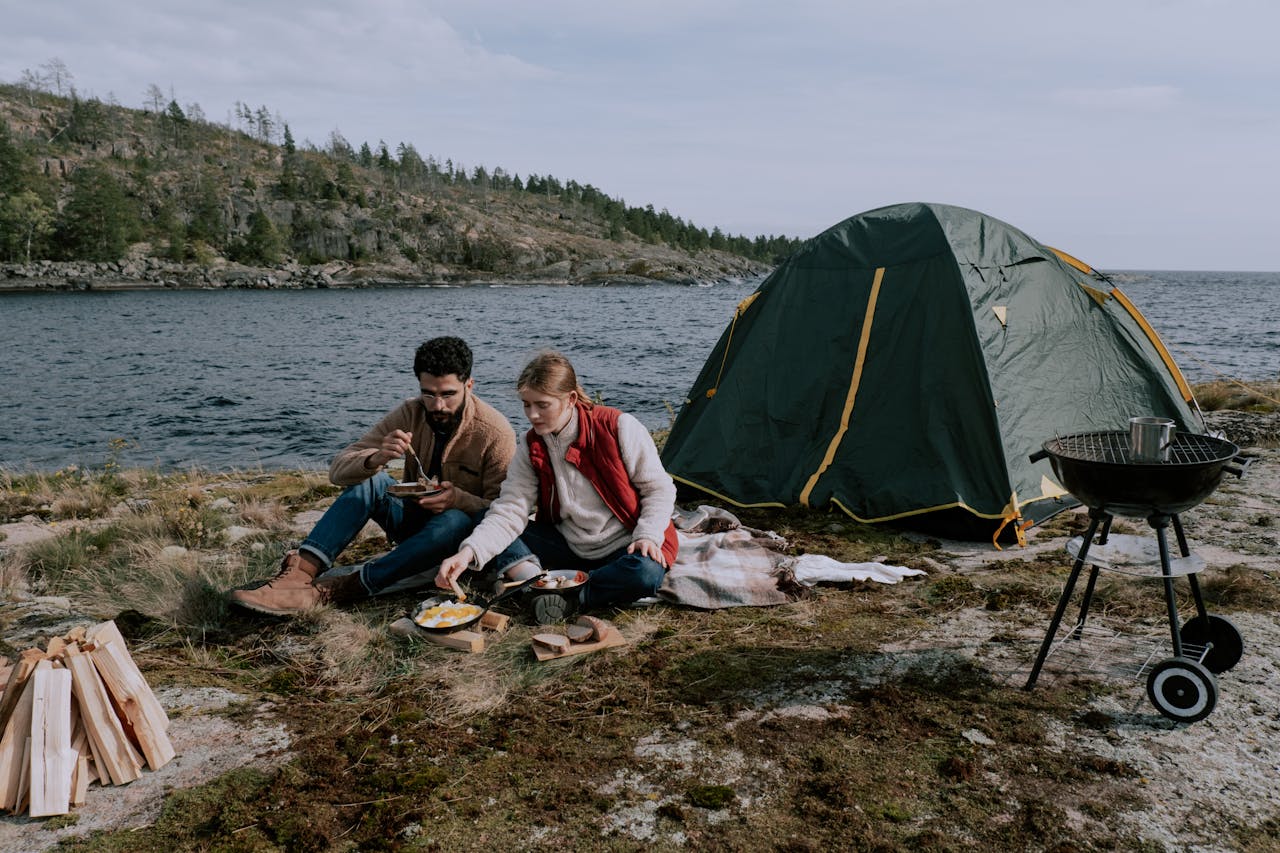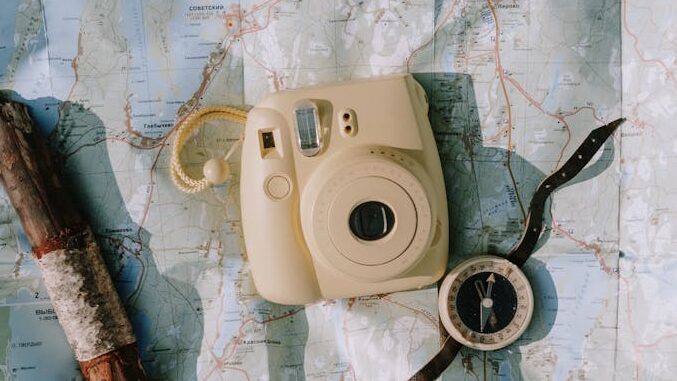
Essential Gear Checklist for camping
In addition to the backpack and necessary clothing, there are also other items you need. Camping is one of the best ways to connect with nature and disconnect from everyday life. Whether you’re an experienced camper or a beginner, having the right gear is crucial to ensuring a successful and hassle-free experience. From essentials to optional items, this Ultimate guide will help you prepare a complete checklist to make the most of your next outdoor adventure. We introduce to you the Essential Gear Checklist for Camping, and we also provide you with a printable list at the end.
Camping Gear Must-Haves:
1. Shelter and Rest
- Tent (including poles, stakes, and ropes)
- Backpack
- Tarp or rainfly (for extra shade or protection)
- Sleeping bag (appropriate for the season)
- Sleeping pad, mat, or inflatable mattress
- Extra blanket
- Camping pillow (optional)
- Hammer or mallet (for driving stakes)
- Tent repair kit (duct tape, patches, etc.)
2. Cooking and Food
- Portable stove or camping cooker
- Fuel for the stove
- Lighter or waterproof matches
- Portable grill or campfire grill grate
- Pots and pans (preferably lightweight)
- Camping coffee maker or French press
- Kettle or pot for boiling water
- Ladle, spatula, and other cooking utensils
- Cutlery (fork, knife, spoon)
- Reusable cups and plates
- Water bottles or canteens
- Cooler or portable fridge (with ice or gel packs)
- Food storage containers
- Reusable food bags (airtight)
- Folding cutting board
- Spices, salt, and oil
- Non-perishable foods (cans, rice, pasta, etc.)
- Snacks and energy bars
- Biodegradable soap (for washing dishes)
- Sponge and scrubber
- Dish towels
- Portable trash can or trash bags
3. Clothing and Footwear
- Shirts and pants (according to the season)
- Thermal underwear (for cold weather)
- Waterproof and windproof jacket
- Sweater or fleece
- Convertible pants or shorts
- Hat or cap (for sun protection)
- Scarf and gloves (if camping in cold areas)
- Hiking boots or sturdy shoes
- Sandals or comfortable camp shoes
- Extra socks (including wool socks for cold)
- Swimsuit (if near lakes or rivers)
- Quick-drying towel
- Comfortable sleepwear
- Additional rain poncho or cloak
4. Lighting and Power
- Handheld flashlight or headlamp
- Tent lamp or camping lantern
- Extra batteries or solar charger
- Charging cables for electronic devices
- Power bank (portable battery)
- Reflective tape (to mark your tent)
5. Hygiene and Personal Care
- Toilet paper
- Camping trowel (for digging waste holes)
- Personal hygiene items (toothbrush, toothpaste, etc.)
- Biodegradable soap and shampoo
- Wet wipes
- Hand sanitizer
- Sunscreen and lip balm
- Insect repellent
- Comb or brush
- Hand towel
- Small mirror
- First aid kit (bandages, antiseptics, pain relievers, etc.)
- Personal medications
- Emergency kit (including thermal blanket, whistle, etc.)
6. Navigation and Safety
- Physical map of the area
- Compass
- Portable GPS (optional)
- Emergency whistle
- Survival knife or multitool
- Paracord or sturdy rope
- Emergency radio
- Bandanas or cloths (multipurpose)
- Duct tape (for quick repairs)
7. Extras and Comforts
- Folding chairs
- Folding table
- Hammock
- Book or Kindle
- Board games or cards
- Camera
- Binoculars
- Trekking poles
- Picnic blanket
- Umbrella or sunshade
- Mosquito net (for tent or common areas)
- Water bag (for portable showers)
- Collapsible bucket
- Portable clothesline and clips
- Heating pad (for cold nights)
- Cushion or folding seat
- LED string lights (to create a cozy camp atmosphere)
8. Activity Gear
- Fishing gear (if allowed and you plan to fish)
- Mountain bike
- Climbing rope (if you’re in an appropriate area)
- Snorkel gear (if near water)
- Kayak or canoe (if possible in the area)
- Ball, frisbee, or kite
- Photography equipment (if you like capturing nature)
9. Environmental Protection
- Trash bags (preferably biodegradable)
- Portable ashtray (if someone in your group smokes)
- Water filter or purification tablets
- Portable ashtray (to avoid leaving cigarette butts)
- Recycled paper (if you bring extra paper)
You can also watch this video about Camping Essentials List
When it comes to camping gear, the tent is probably the most important item you’ll bring with you from the Essential Gear Checklist. It’s your shelter and protection from the elements. When choosing a tent, be sure to consider the weather conditions of the place you’ll be camping, the number of people who will use it, and ease of setup. Tents come in various shapes and sizes, from lightweight and portable to large and spacious designs meant for families.
Planning
Having an Essential Gear Checklist will not ensure an enjoyable trip: Planning is key to a successful camping trip. A good start is choosing the right location. Research the campsite, considering aspects like weather, altitude, and proximity to water sources. Some campsites require permits, so make sure to obtain them in advance. Also, plan your route, whether you’re going on foot, by bike, or by car. Consider the time it will take to reach the campsite and the terrain conditions.
The backpack is another essential item. Ensure it’s comfortable, with enough capacity to carry all your gear without overloading it. Distribute the weight evenly, placing heavier items at the bottom and closer to your back. Don’t forget to include a map, compass, or GPS, especially if you plan to explore remote areas.
- Research Campsite: Before heading out, research the campsite thoroughly. Look into weather conditions, altitude, and proximity to essential amenities like water sources.
- Permits: Check if the campsite requires any permits and secure them in advance to avoid last-minute hassles.
- Route Planning: Plan your route based on your mode of transport—be it hiking, biking, or driving. Account for travel time and any possible terrain challenges.
- Pack Smart: Ensure your backpack is well-organized and comfortable. Distribute the weight evenly and pack essential items where they are easily accessible.
- Navigation Tools: Carry a map, compass, or GPS device. Familiarize yourself with the route and important landmarks to avoid getting lost.
- Weather Preparation: Check the weather forecast before you leave and prepare for any potential changes in weather conditions. Pack accordingly.
Personal Preparation
Personal preparation is crucial to enjoying your camping experience. Wearing the right clothing is essential; opt for layered clothing that allows you to adjust to temperature changes. Don’t forget a raincoat in case of rain and a hat to protect yourself from the sun.
A first aid kit should always be at hand, with basic items such as bandages, antiseptics, pain relievers, and any specific medications you may need. Also, make sure to bring enough food and water for the entire trip. Consider foods that are easy to prepare and store, like dried fruits, nuts, and canned meals. If you’re bringing cooking utensils, plan your meals in advance to ensure you have everything you need.
- Layered Clothing: Wear layered clothing to easily adjust to varying temperatures. Start with moisture-wicking base layers, add insulating layers, and top off with a waterproof outer layer.
- Rain Gear: Pack a high-quality raincoat and waterproof gear to stay dry during unexpected rain showers.
- Sun Protection: Bring a hat, sunglasses, and sunscreen to protect yourself from sun exposure.
- First Aid Kit: Carry a comprehensive first aid kit that includes items for common injuries and ailments, such as bandages, antiseptics, pain relievers, and any personal medications.
- Food and Water: Pack enough non-perishable food and clean water for the entire trip. Opt for easy-to-prepare meals and snacks like dried fruits, nuts, and canned foods.
Finally, remember that personal preparation also includes being mentally ready for the challenges camping can present. Keep a positive attitude, be flexible, and enjoy every moment nature has to offer.











